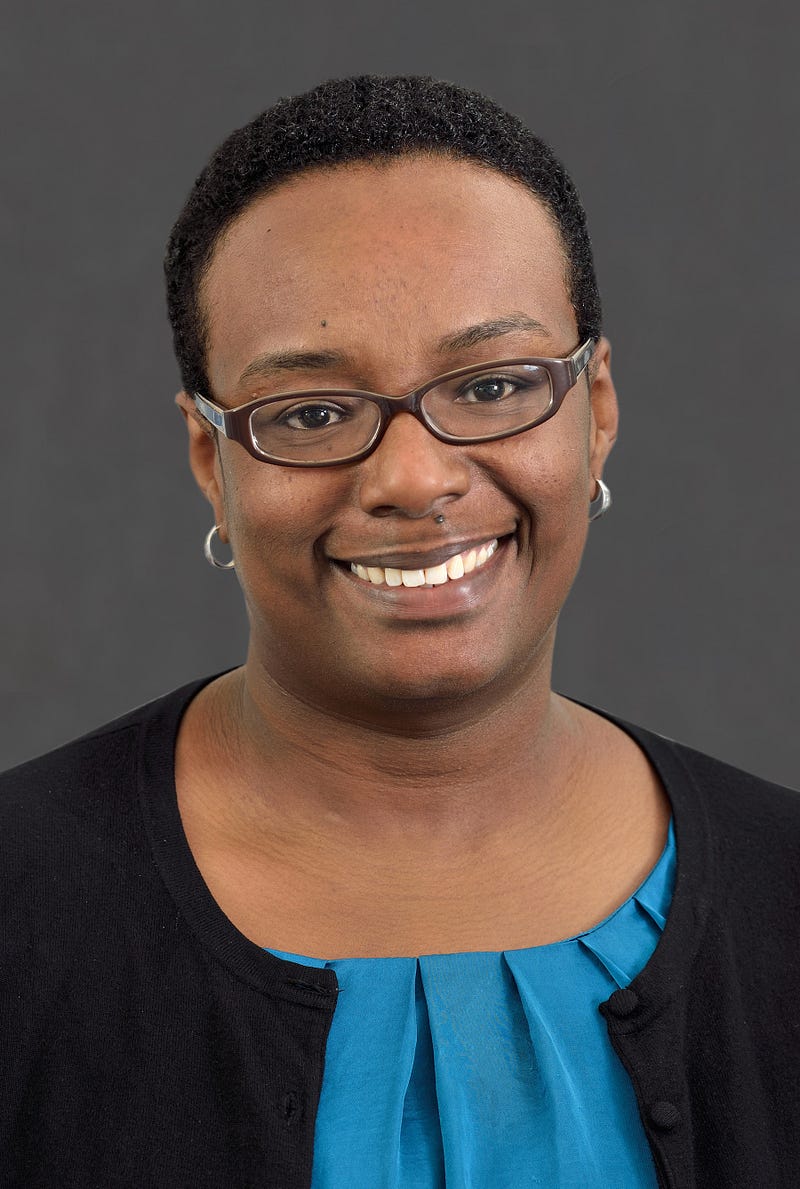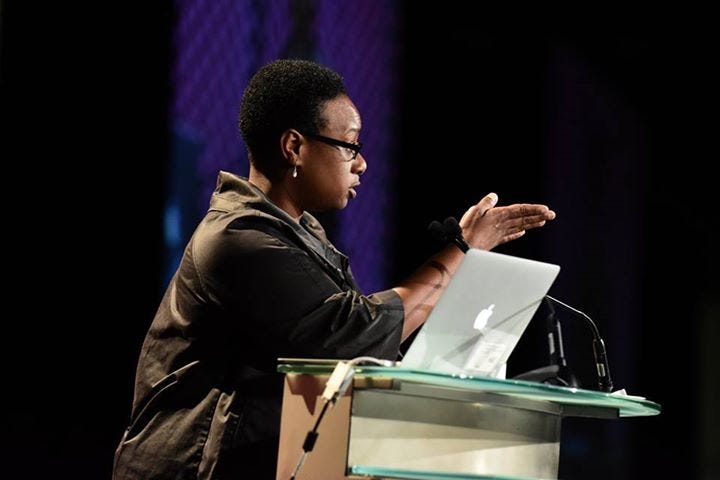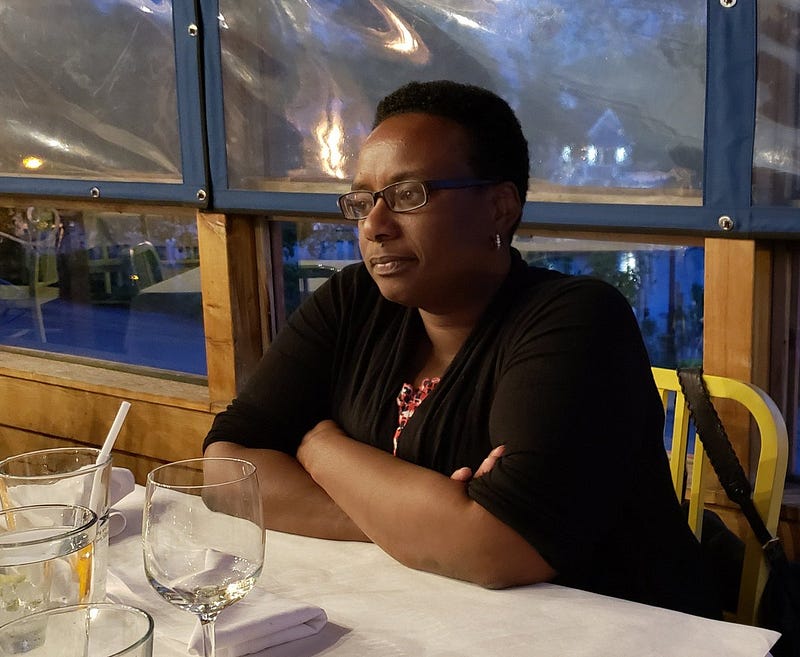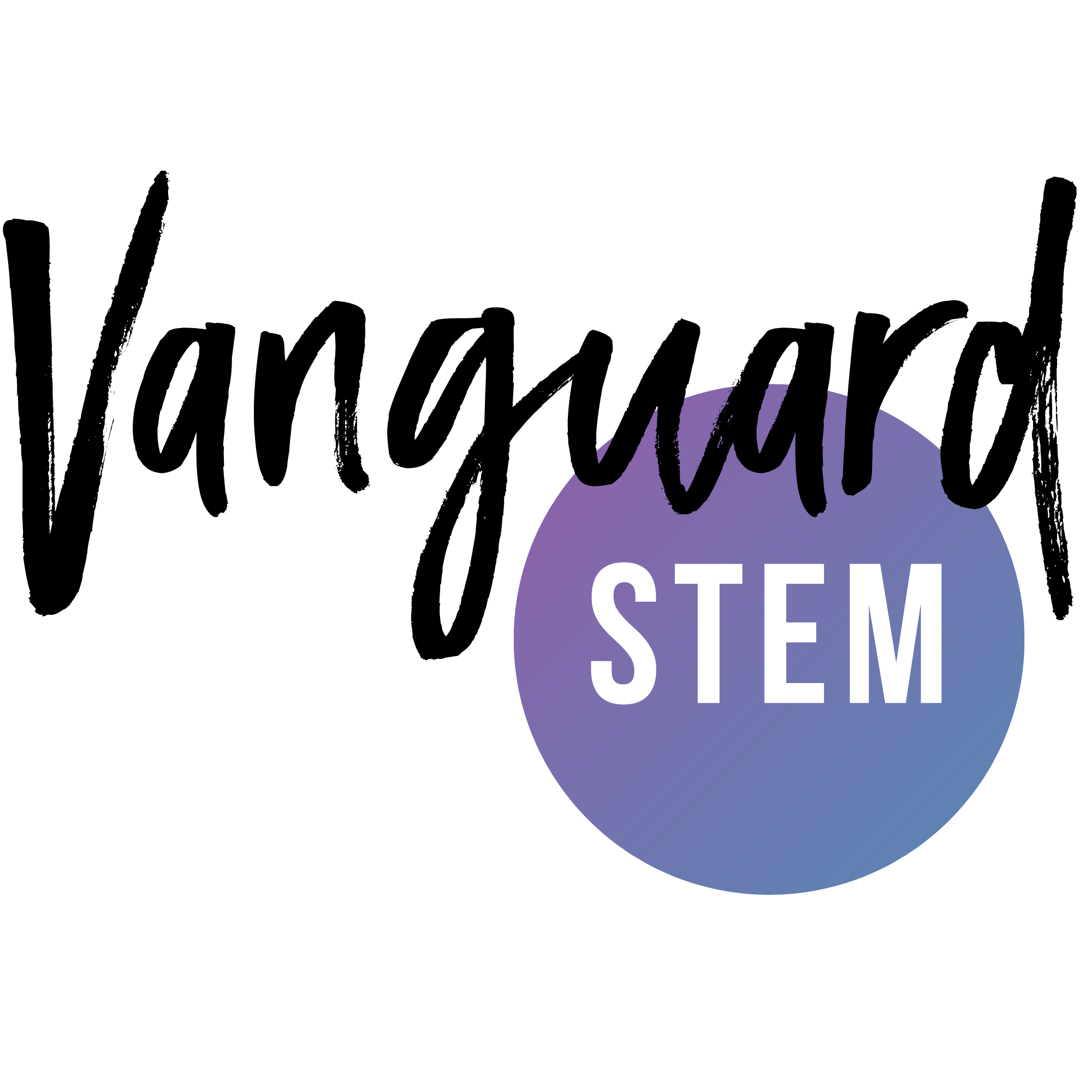My primary goal is to “fully inhabit” my space, life & opportunities, fully honoring my humanity, my ancestors and the full humanity of those whom I engage.
![#WCWinSTEM: Beronda Montgomery, PhD [she/her]](https://vanguardstem.com/wp-content/uploads/2023/10/1F09OPB-gUzH1dB-3rof_4Q.jpg)
Responses may be edited for clarity and brevity.

Where did you go to school?
- Ph.D. Plant Biology, University of California, Davis, Davis, California
- M.S. Biology, U. Central AR, Conway, AR
- A.B. Biology, Washington University, St. Louis, MO
What do you do right now?
I’m a professor and administrator at Michigan State University. I’m jointly appointed in the Departments of Biochemistry & Molecular Biology and Microbiology & Molecular Genetics, as well as a member of the Department of Energy-Plant Research Laboratory, all at MSU.
My laboratory colleagues and I study how individuals perceive, respond to, and are impacted by the environments in which they exist. Our primary lab-based research is focused on the responses of photosynthetic organisms (i.e., plants and cyanobacteria) to external light cues and nutrient availability. We use a range of approaches including biochemistry, genetics, cell biology, and physiology to understand the genes and proteins actively used by these organisms to detect light cues and nutrients, and the signal transduction or communication pathways used to determine who the organisms should respond to perceived cues.
Our primary lab-based research is focused on the responses of photosynthetic organisms (i.e., plants and cyanobacteria) to external light cues and nutrient availability.
I also investigate individual perception and responses to environments in the context of effective mentoring and leadership of individuals, and the role of innovative leaders in supporting success. This latter work occurs through active research and scholarship and is the basis of my engagement in administration locally at my current institution. My roles in administration have included working to enhance development and support for faculty and academic staff, primarily in the area of building and cultivating robust research programs.
I also investigate individual perception and responses to environments in the context of effective mentoring and leadership of individuals, and the role of innovative leaders in supporting success.
![#WCWinSTEM: Beronda Montgomery, PhD [she/her]](https://vanguardstem.com/wp-content/uploads/2023/10/1g0SxHis27QBgxzTPaHhBwg.jpg)
What made you choose your STEM discipline in the first place?
I decided very early that I wanted to be a lawyer, pre-kindergarten. Throughout school, aptitude tests and community engagement always affirmed that choice. As it became clear in elementary and middle school that I had strong aptitude for and interest in science and math, my commitment to law slowly expanded to include those interests and ultimately evolved into biological patent law.
As an undergraduate I planned to attend law school to become a biological patent lawyer. Thus, while I majored in biology, it was only once I truly, deeply engaged in the experimental process and hands on research that I seriously began to consider a career as a researcher rather than a lawyer mediating patents about research.

What’s one piece of advice you wish you had when you started your STEM journey?
That science needs me — wholly me — just as I am. This fact is true even when “science” doesn’t know it or appreciate it.
My deepest commitments, most creative thoughts, and ongoing commitments are deeply centered in my grounding as a Black woman committed to communal engagement and success. These are not metrics that academia “trains” individuals to pursue. Indeed, science environments and academia spend significant time “training” individuals how to “be” scientists. This training occurs through patriarchal and white supremacy lenses that ask so many to “shed” parts of themselves to fit narrow understandings of what a “successful” scientist does or is. Such training through acculturation means that the most unique contributions and commitments that I have to offer have often been unappreciated or ignored, even as these contributions transform these places into better versions of themselves.
Science needs me — wholly me — just as I am. This fact is true even when “science” doesn’t know it or appreciate it.
Do you have any woman of color in STEM sheros? Who and why?
Last year I was particularly inspired by the many women of color who led the #BlackIn_ movements, and I continue to be inspired by how so much of that work sits on the foundation of #BLACKandSTEM, founded by Dr. Stephani Page (@ThePurplePage).
What else are you passionate about?

Writing and travel.
Writing is a critical part of my work, but it so much more than a tool of my profession. Writing is how I process my place and movement through the world. It’s as critical a part of my existence as breathing.
Why do you think it’s important to highlight women of color in STEM?
It’s critically important to know that you are not alone. Although we may sit in particular spaces as “one” we come as many and highlighting women on color in STEM is important as a reminder of the legions with whom we sit/stand.
How has the COVID-19 pandemic affected your STEM identity and interests, if at all?
The COVID-19 pandemic has provided many opportunities for me to reflect on the work I’ve done in the equity and justice space.
This pandemic is one that impacts us all and yet is not impacting us all equally, because of the deeply inequitable structures that underlie all domains of our society. I’m deeply engaged in reflection and action related to what will we do about what it has unearthed.
Is there anything else you’d like us to know?
I’m super excited to debut my first book Lessons From Plants. Over the years of researching and learning about plants, I’ve also learned a lot from them about life and living. I’m looking forward to the conversations my reflections will allow me to engage in and, thus, am eagerly awaiting April!
(Editor’s Notes: Prof. Montgomery will be our April #VanguardSTEM Book Club featured author!
She is also a long-time member and supporter of the #VSVillage and the #BlackandSTEM community. She has been a critical part of the taproot and network of Black, Indigenous, women of color in STEM who have built intersectional STEM theory and praxis for decades. We would not be where we are without her.
You can find out more about Prof. Montgomery and read her work at her website and follow her on social media.)
This article was originally published on January 27, 2021 on VanguardSTEM.com as part of our #wcwinstem series.
If you value the work we do and the content we provide at #VanguardSTEM, please consider donating to our parent not-for-profit, The SeRCH Foundation, Inc., to help support this work.
